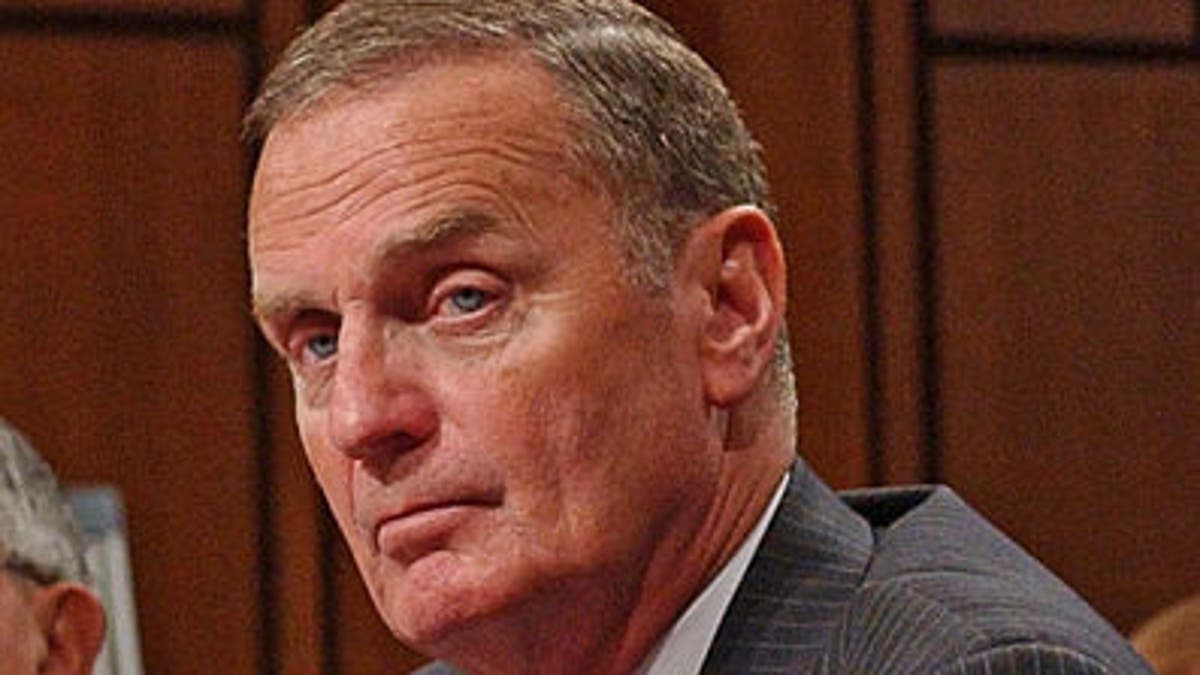
FILE: National Security Adviser James Jones (AP Photo)
President Obama's national security adviser, defended his deputy on Sunday, saying he's glad John Brennan is on his side and he agrees with his assessment that the United States can't stop 100 percent of captured terrorists from returning to the field.
Gen. Jim Jones defended Brennan, the president's top counterterrorism adviser, after Brennan on Saturday compared the U.S. criminal recidivism rate of 50 percent to the one in five terrorists who are released to other nations and return to the battlefield.
"Twenty percent isn't that bad," Brennan said.
Jones said the United States has to make sure to do the best it can, but it's unrealistic to think no terrorist allowed to go free won't return to battle.
"It's never going to be zero," Jones said on "Fox News Sunday." "We have a long history of having convicted terrorist in federal courts, locking them up for many, many years and doing the best we can, but zero is not going to be the standard in which we try to achieve it."
But Brennan's argument is "mindboggling and unnerving" to Sen. Lindsey Graham, R-S.C., who said he's lost confidence in Brennan's ability to keep the United States safe.
"It makes no sense to say 20 percent recidivism rate is not that bad," Graham said, appearing after Jones. "Just astounding, just absolutely disconnected from the world we live in and the threats we face."
Former Vice President Dick Cheney, speaking on ABC's "This Week," also rejected Brennan's commentary that the terrorists who went back to battle were all released by the Bush administration. Cheney said he expects the rate to go up because the remaining prisoners at Guantanamo Bay being repatriated are the hardest core fighters.
Graham added that it's "crazy" that Christmas Day bomber Umar Farouk Abdulmutallab was mirandized less than an hour after he was taken into custody, a decision that Brennan has vigorously defended.
Jones said regardless of the way the arrest went down and the decision afterward to fly in Abdulmutallab's parents to convince him to talk to FBI officials, "the information that we're getting from our captive is -- both before and after mirandizing -- very helpful."
Jones added captured terrorists need to have some due process, but the "big guns" need to be "incarcerated for the rest of their lives."
As for lower-level terrorists, the United States has found homes for some in Yemen and Saudi Arabia, where they are going through rehabilitation programs widely seen as questionable. More will have to find "reconciliation and reintegration" in Afghanistan, Jones said.
"Part of this war is predicated on how we end it as well. There's a certain amount of reconciliation that has to take place," he said.
Jones did acknowledge the sluggish pace of getting operational the high value interrogation group, HIG, which is designed to track down terror leads around the world, was an error.
"We didn't support the president as well as he should've been supported," he said.
Jones also came to Brennan's defense as a counterror chief, saying he has had "a remarkable career of protecting this country," and if Brennan were trying to track down him for prosecution, "I wouldn't be feeling too comfortable about my long term prospects.
"I know John Brennan, I know how he operates and I'm happy he's on our team," he said.




